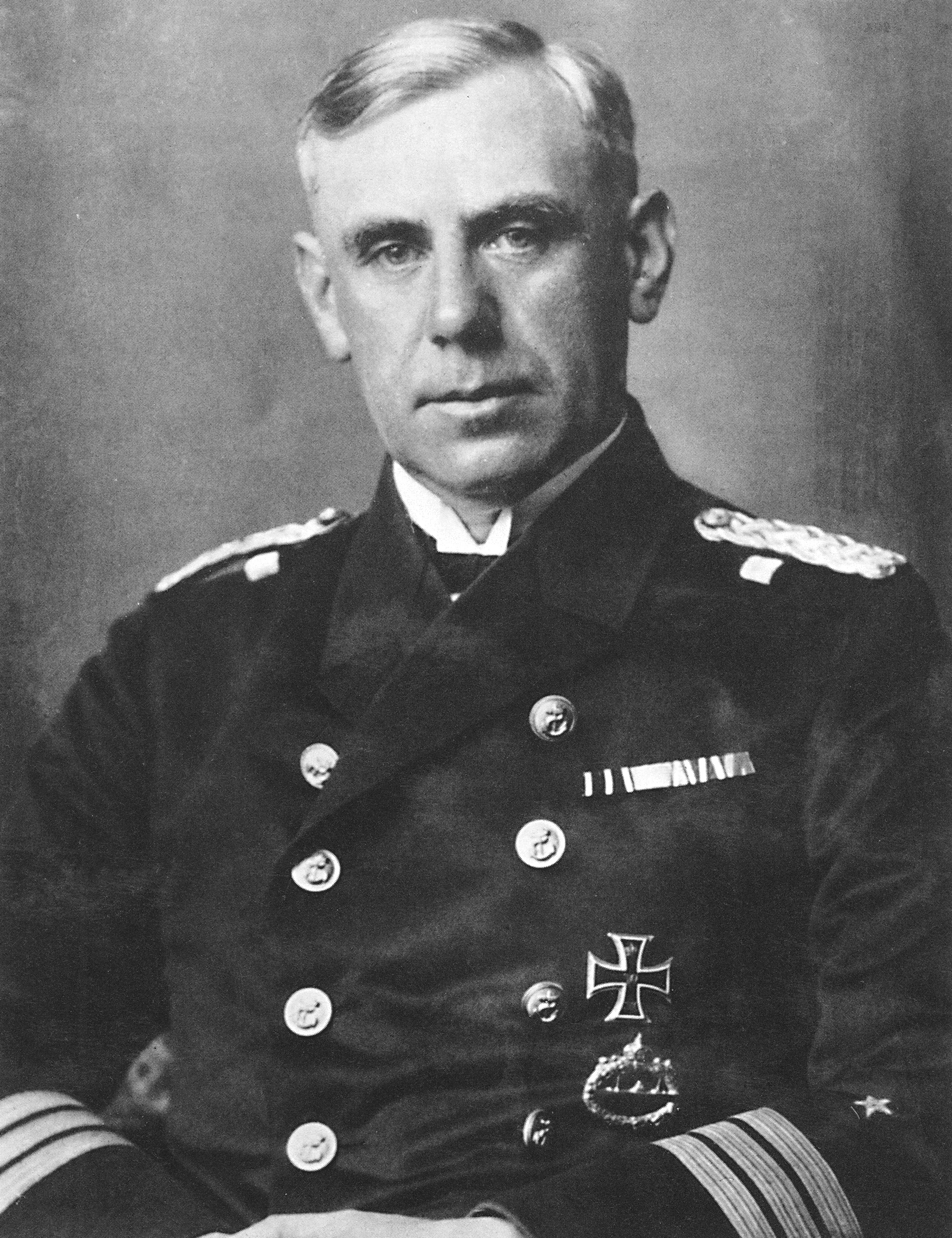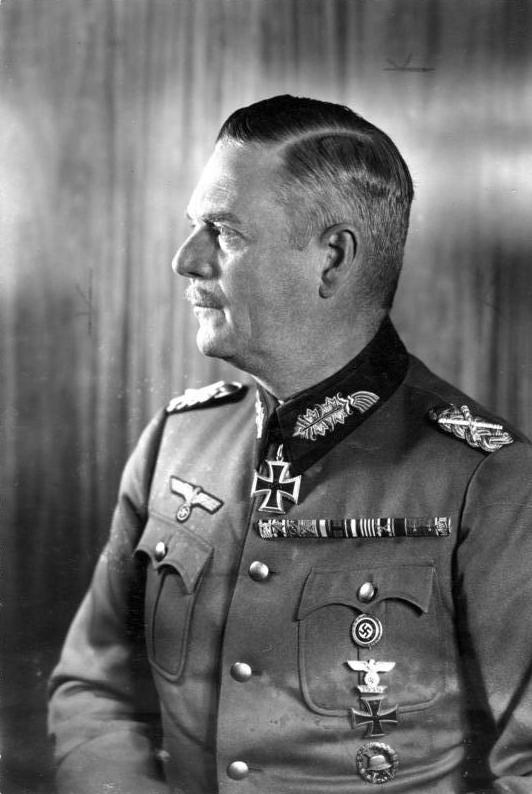CONVERSATION WITH GENERAL KEITEL on 17 August 1939
[Identified by General Keitel as a memorandum of Admiral
Canaris]
I reported my conference with Jost to Keitel. He said that he would not pay any attention to this action, as the Fuehrer had not informed him and had only let him know that we were to furnish Heydrich with Polish uniforms. He agreed that I instruct the General Staff. He says that he does not think much of actions of this kind. However, there is nothing else to be done if they have been ordered by the Fuehrer, that he could not ask the Fuehrer how he had planned the execution of this special action. In regard to Dirschau he has decided that this action would be executed only by the army.
I then reported my conference with Roatta. He told me that he thought it very good if Mussolini would tell the Fuehrer in definite terms that he would not enter the war. He personally is of the opinion that Mussolini would join anyhow. I answered him that I believed this improbable by reason of the conference between Ciano and Ribbentrop which I reported to him once more in detail. He says that the Fuehrer had told him contrarywise.
795—PS
795-PS
Based on my reports he had to conclude that the Fuehrer does not tell him—Keitel—everything. Furthermore, I told him that I had learned from Count Marogna that the King of Italy had told King Alfonse a few days ago that he would not sign under any circumstances if Mussolini should present the order for mobilization.
In connection with this Keitel expresses the opinion that it is quite interesting to note that even a country like Italy which is governed by a dictatorship does not think much of war. How much more so must it be in the democratic countries ? He is confident that the English would not interfere. I tried to contradict his views and say that the English would certainly at once institute a blockade and would destroy our merchant shipping. Keitel believes this to be of no great importance as we would receive oil from Rumania. I answered that this is not the deciding factor and that we could not resist a blockade for a long time and that England would fight against this with all their means if we should use force against the Poles and if it were to come to bloodshed. I told him that the English would have acted in precisely the same manner, had any bloodshed occurred when we marched into Czechoslovakia. I tried to explain to Keitel the consequences of economic warfare for Germany and tell him that we have only very few means to counteract it. Just a short while ago I had heard that we could only send 10 submarines into the Atlantic Ocean. Keitel thinks that it should be easy to force Rumania to surrender her oil after the conquest of Poland. I called his attention to the actions of the English in the Balkans and tried to explain to him that the English would certainly have everything prepared in the Balkans for such an eventuality. Bulgaria would not be useful to us as an ally as it would be attacked at once by Rumania and Turkey.
Search the archive
Memorandum of a conversation between Canaris and Keitel, on Hitler's actions regarding Poland, including the instruction to provide Polish uniforms for Heydrich, Italy's reluctance to join the war, and the prospects of British actions against Germany
Authors
Wilhelm Canaris (admiral; High Command of the Armed Forces)
Wilhelm Canaris
German admiral, head of military intelligence service

- Born: 1877-01-01 1887-01-01 (Aplerbeck)
- Died: 1945-04-09 (Flossenbürg concentration camp)
- Country of citizenship: Germany
- Occupation: intelligence officer; naval officer; resistance fighter; submariner
- Participant in: 20 July plot
- Military rank: admiral
- Military branch: German Navy; Imperial German Navy
- Educated at: Naval Academy at Mürwik; Q1499438
Wilhelm Keitel (Field Marshal, Chief of the High Command of the Armed Forces)
Wilhelm Keitel
German field marshal

- Born: 1882-09-22 (Helmscherode) (country: German Empire; located in the administrative territorial entity: Duchy of Brunswick)
- Died: 1946-10-16 (Nuremberg) (country: Allied-occupied Germany)
- Country of citizenship: Germany
- Occupation: military officer; military personnel; politician
- Member of political party: Nazi Party
- Military rank: general field marshal
- Military branch: artillery
- VIAF ID: https://viaf.org/viaf/74027425
Date: 17 August 1939
Literal Title: Conversation with General Keitel on 17 August 1939
Defendant: Wilhelm Keitel
Total Pages: 1
Language of Text: English
Source of Text: Nazi conspiracy and aggression (Office of United States Chief of Counsel for Prosecution of Axis Criminality. Washington, D.C. : U.S. Government Printing Office, 1946.)
Evidence Code: PS-795
Citation: IMT (page 1023)
HLSL Item No.: 450796
Notes:Canaris wrote the memo. In the transcript, the exhibit number is mis-stated as 64; 54 is correct. The Polish uniforms were presumably to be used to stage a fictitious Polish attack upon Germans.
Document Summary
PS-795: Memorandum regarding a conference with Keitel
PS-795: Unsigned report of a discussion by the writer with, Keitel, 17 August 1939, on the political situation. subjects of discussion: Hitler’s order that Polish uniforms are to be made available; Italy’s attitude in case of war; England’s possible entry into the war; Balkan problems "after the conquest of Poland"